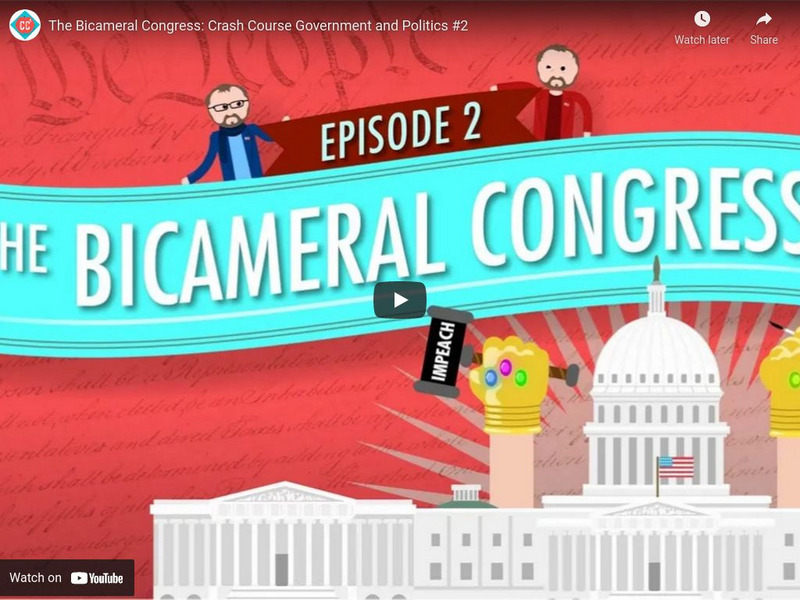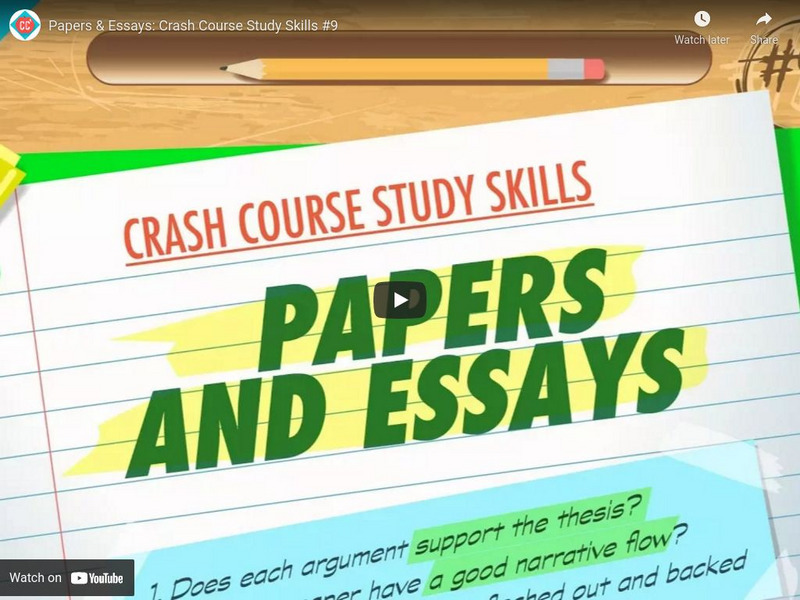Hi, what do you want to do?
Center For Civic Education
60 Second Civics: Constitutionalism: Written vs. Unwritten
Presents questions about constitutions, and discusses countries that have written constitutions and those that have ones that are not single, written documents.
Center For Civic Education
60 Second Civics: Rights After Independence Pt. 7: Legislative Supremacy
The Articles of Confederation were organized around the principle of legislative supremacy. Americans were wary of a strong central goverment. This would later cause problems.
Center For Civic Education
60 Second Civics:the Three Branches of Government:broad Versus Enumerated Powers
How broad should be the powers of Congress? The Virginia and New Jersey plans proposed different visions of legislative power.
Center For Civic Education
60 Second Civics: Introduction to Congress
Explains the role of Congress in the American government, as a representative of people and of the states.
Center For Civic Education
60 Second Civics: How Congress Functions: Pt. 15: Resolutions
Resolutions in Congress can be simple or joint. They can be proposals for laws, for constitutional amendments, or for other matters.
Center For Civic Education
60 Second Civics: How Congress Functions: Pt. 16: How a Bill Becomes a Law
The lengthy process a bill must go through before it becomes a law is explained.
Center For Civic Education
60 Second Civics: How Congress Functions: Pt. 17: Bills in Committee
Bills are assigned to one or more committees when they first enter the House of Representatives or the Senate. They are examined, amended, then go to a hearing, which is often public, for further scrutiny.
Center For Civic Education
60 Second Civics: How Congress Functions: Pt. 18: Mark Up Sessions
Mark-up sessions are committee meetings that happen at a later stage in the process a bill goes through before a final vote in the Senate or the House.
Center For Civic Education
60 Second Civics: How Congress Functions: Pt. 19: Conference Committees
A conference committee is comprised of members from both chambers of Congress. It tries to resolve differences between the House and the Senate over the content of a bill. It issues a conference report to both chambers for a vote.
Center For Civic Education
60 Second Civics: How Congress Functions: Pt. 21: Majority Support
At every stage in the process of becoming a law, a bill is scrutinized and must have majority support for it in order to be moved along.
Center For Civic Education
60 Second Civics: Challenges of Writing the Articles of Confederation
The writers of the Articles of Confederation had to overcome many obstacles in creating the nation's first constitution.
Center For Civic Education
60 Second Civics:achievements of the Articles of Confederation Part 1
Today we delve into constitutional history by examining the achievements of the Articles of Confederation.
Center For Civic Education
60 Second Civics:attempts to Reform the Articles of Confederation Part 1
Today we discuss attempts to solve the problems of the Articles of Confederation.
Sophia Learning
Sophia: Body Paragraphs
This lesson introduces body paragraphs. [3:41] CCSS.ELA-Literacy.WHST.6-8.2.b
Crash Course
Crash Course Government and Politics #2: The Bicameral Congress
Crash Course video in which Craig explains what it means to have a Bicameral Congress discussing some of the history behind our Legislative Branch. [9:04]
Sophia Learning
Sophia: Concise Language: Avoiding Redundancy
This screencast offers several methods to help readers spot and fix redundancy in their writing. She discusses why concise writing is important, and specific ways to edit for a more expressive, concise text. Includes short quiz. [3:32]
Imagine Learning Classroom
Learn Zillion: Provide an Effective Conclusion
In this lesson, you will learn how to provide an effective conclusion by analyzing your thesis and body paragraphs. [8:19]
Crash Course
Crash Course Study Skills #9: Papers and Essays
Writing research papers is an essential skill in your career as a student, and this week we're going to help you do that like a pro. From figuring out where to begin to finding the best systems, to breaking out of "research recursion...
Khan Academy
Khan Academy: Article I of the Us Constitution
Jeffrey Rosen of the National Constitution Center in conversation with Walter Isaacson of the Aspen Institute about Article I of the Constitution. [10:43]
PBS
Pbs: Indian Pride: Spirituality, Part 4
A member of the Northern Cheyenne Tribe of Montana tells about the origins of a song, then shares the song using a traditional instrument.
Center For Civic Education
60 Second Civics: Congress and the British Parliament
Discusses how the structure of Congress differs from the British parliamentary system.
Sophia Learning
Sophia: Descriptive Papers: Key Elements: Lesson 1
This lesson goes over words, phrases, and key elements that are included in descriptive papers. It is 1 of 2 in the series titled "Descriptive Papers: Key Elements."
HipHughes History
You Tube: Congress for Dummies Article 1 of the Constitution
The second in the Constitution for Dummies series, in this lecture HipHughes takes you through Article I of the Constitution examining all ten sections outlining Legislative Powers.
Sophia Learning
Sophia: Cause and Effect Papers: Key Elements
This lesson goes over words, phrases, and key elements that are included in cause and effect papers.














